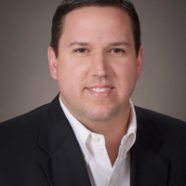December 22, 2019
$76,600 This grant to Dr. Elgersma and his colleagues, built further upon his earlier significant work demonstrating that many of the neurological and behavioral features of the Angelman mouse model could be reversed by changing the phosphorylation status of an […]
Read more
December 22, 2019
This project funds work on a special type of mouse model in which production of the UBE3A protein can be identified by use of a yellow fluorescent tag. This then enables the tracking and localizing of certain UBE3A proteins within […]
Read more
December 22, 2019
$99,425 At the DNA level, UBE3A represents a single region of DNA molecules but when UBE3A makes its proteins multiple different proteins appear and these are termed isoforms. In this project, Dr. Jiang is evaluating some of the shorter protein […]
Read more
December 22, 2019
$25,000 – RDCRN Training Grant This proposal seeks to compare the yield of routine EEGs obtained as a standard in the Angelman Natural History protocol with two other types of EEG recordings to identify common EEG patterns. These patterns include […]
Read more
December 22, 2019
$92,144 – 1-year With previous support from the ASF, Dr. Elgersma engineered a UBE3A- inducible mouse in which the UBE3A gene (responsible for causing AS) is non-functional when the mouse is born. However, by a medication injection at any desired […]
Read more
December 21, 2019
$170,202 (2 years) Previous research discoveries have indicated that one of the UBE3A target proteins, Arc (activity-regulated cytoskeleton-associated protein) plays a critical role in regulating synaptic plasticity and long-term information storage in the brain. By understanding how Arc is involved […]
Read more
December 21, 2019
$84,011 In this study, Dr. Dindot plans to investigate whether gene therapy in the AS mouse (using lentiviruses as the vector) is a viable therapeutic option, and thus a future possibility for individuals with AS. He will also examine the […]
Read more
December 21, 2019
$200,000 – 2-years Dr. Zylka’s lab will expand on the work previously funded by ASF that led to the identification of a family of topoisomerase inhibitors that can unsilence the paternal UBE3A gene. In order to learn more about this […]
Read more






